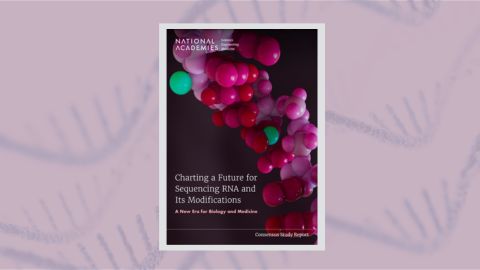ASBMB weighs in on Title IX updates
The American Society for Biochemistry and Molecular Biology last month made five recommendations to the U.S. Department of Education in response to the agency’s proposed rulemaking regarding sexual harassment and Title IX protections.
The recommendations included (1) defining sexual harassment better, (2) eliminating the requirement for live cross-examinations in harassment and assault cases, (3) making explicit protections to lesbian, gay, bisexual, transgender, queer or questioning, intersex, asexual, and other non-straight, non-cisgender identifying people, (4) confirming protections against multiple forms of retaliation, and (5) making explicit protections of all postdocs.
Protections and politics
Title IX is a 1972 civil rights law that protects people from discrimination based on sex in educational institutions, programs or activities that receive federal funding. Over the decades, the law has opened doors for many women and girls to have equal access to education and extracurricular activities, such as sports. But in recent years, Title IX protections have come and gone, depending upon who has been in the White House.
In 2011, the Obama administration provided a guidance urging colleges and universities to deal with sexual harassment and assaults on campus. However, the Trump administration removed many protections. Then-Secretary of Education Betsy DeVos, for example, narrowed the definition of sexual harassment and stripped away protections in favor the accused, resulting in damaging experiences for survivors, such as mandatory live cross-examinations.
In the first month President Joe Biden was in office, he issued an executive order aimed at preventing and combating discrimination on the basis of gender identity and sexual orientation in the federal service. Two months later, he issued an executive order on discrimination specifically in educational settings.
That summer, the ASBMB urged the Department of Education Office of Civil Rights to clearly define sexual harassment, eliminate mandatory live cross-examinations and change the standard of evidence in Title IX cases to align with other civil cases by using a preponderance of the evidence.
This summer, the agency released a notice of proposed rulemaking, to which the ASBMB responded with the following suggestions, hewing closely to the ones it released in June 2021.
Better define sexual harassment
The society expressed support for the agency’s new definition of sexual harassment: “sex discrimination, including related to a hostile environment under the recipient’s education program or activity, as well as discrimination on the basis of sex stereotypes, sex characteristics, pregnancy or related conditions, sexual orientation and gender identity.”
Whereas the Trump administration’s definition had three categories — sexual assault, quid pro quo and sexual harassment — the new definition ensures that all forms of sexual harassment and sexual violence are covered.
Remove requirement for cross-examinations
The society expressed support for the agency’s new language making live cross-examinations of harassment and assault survivors optional. The society also urged officials to allow institutions to proceed with the single-investigator model when needed as it is better for avoiding direct confrontation between the accuser and the accused, and it is common practice in civil rights cases.
Make LGBTQIA+ protections explicit
The society expressed support for proposed language making LGBTQIA+ individuals explicitly protected under Title IX. “By protecting LGBTQIA+ students, the department will be creating safer and less hostile learning environments not only for LGBTQIA+ students but for all students, resulting in more optimal learning outcomes,” the society wrote.
Clarify and expand concept of retaliation
The society expressed support for a proposed amendment that would protect survivors of harassment and assault from multiple forms of retaliation, not just retaliation from supervisors. “While keeping language broad so that multiple situations can apply is beneficial,” the society wrote, “explaining different forms of retaliation is key to upholding communication between the department and those protected by Title IX. Moreover, updating Title IX to specifically state the prohibition of peer retaliation is important to ensure more victims feel safe to come forward.”
Include protections for postdoctoral trainees
The society urged the agency to explicitly extend protections to people in postdoctoral positions. Currently, students, employees and people participating or attempting to participate in an education program or activity can file Title IX grievances; however, there is no specific wording to protect postdocs, who sometimes are not classified as employees. The society recommended the agency insert direct language to all amendments, including those that prohibit discrimination against pregnant people, to protect individuals in postdoctoral positions.
Enjoy reading ASBMB Today?
Become a member to receive the print edition monthly and the digital edition weekly.
Learn moreGet the latest from ASBMB Today
Enter your email address, and we’ll send you a weekly email with recent articles, interviews and more.
Latest in Policy
Policy highlights or most popular articles

Genetics studies have a diversity problem that researchers struggle to fix
Researchers in South Carolina are trying to build a DNA database to better understand how genetics affects health risks. But they’re struggling to recruit enough Black participants.

National Academies propose initiative to sequence all RNA molecules
Unlocking the epitranscriptome could transform health, medicine, agriculture, energy and national security.

ATP delegates push for improved policies
This ASBMB program helps advocates gain skills to address issues that affect science and scientists.

Advocacy workshops at Discover BMB 2024
Topics include running for office, becoming an advocate, and navigating the grant review process at the NIH.

NIH’s advisory committee releases report on re-envisioning postdoc training
The working group developed six primary recommendations for the National Institutes of Health.

When authoritative sources hold onto bad data
A legal scholar explains the need for government databases to retract information.

